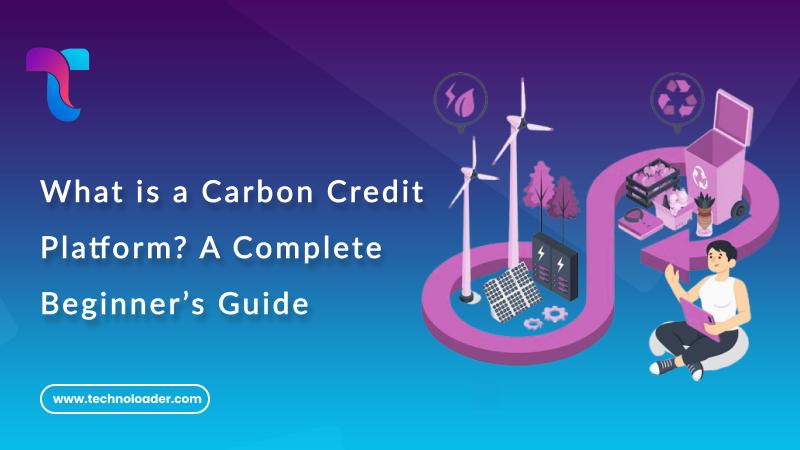Notifications

7 minutes, 37 seconds
-12 Views 0 Comments 0 Likes 0 Reviews

As the globe moves swiftly toward net-zero emissions, carbon credit platforms are helping people and companies limit their impact on the environment. If someone seeks to buy carbon credits for an offset, trade carbon credits, or even invest in low-impact initiatives, it is important to know how carbon credit platforms work. In this beginner’s guide to carbon credit platforms, we will explain the basics, advantages, types of carbon markets, and what to do to begin buying or selling carbon credits.
A carbon credit platform is an online marketplace/service that supports the buying, selling, and trading of carbon credits. Carbon credit platforms support carbon offset buyers as they search for verified carbon projects that reduce or remove greenhouse gas emissions. More broadly, carbon platforms layer vital functions in climate finance supporting transactions in both voluntary and compliance carbon markets with a high degree of transparency and efficiency.
Carbon credits are tradable certificates that represent one metric ton of CO₂ (or its equivalent) removed or avoided from the atmosphere. They are generated from projects such as:
Organizations use carbon credits to offset emissions and achieve sustainability objectives; especially if it is not possible to make direct reductions.
Wondering how carbon credit platforms operate? Here’s a simplified explanation:
These platforms simplify the carbon offset process and make it accessible to individuals, SMEs and large corporations.
It is necessary to understand the distinctions between voluntary carbon markets and compliance carbon markets:
Account in which individuals or companies purchase carbon credits, or offset their emissions of their own preference.
Voluntary carbon market platforms: Anyone can buy credits to voluntarily offset emissions (e.g., eco-conscious companies or individuals).
Compliance carbon market platforms: These are regulated by government policies. Companies in sectors like energy or aviation must offset emissions to comply with legal caps.
Both must exist in order to satisfy climate objectives, but they are variably priced and often have distinctly separate legal governance.
There are very different reasons to use a carbon credit platform:
If you are just starting, then here are the best ranked carbon credit platforms for a beginner to consider from a beginning perspective.
Your choice of a carbon credit platform is determined by your objectives with carbon credits offset, trade, or invest. Below are some considerations:
User interface: Is it intuitive for the user? is it suitable for beginners?
Transparency: Is it clear what details are disclosed about projects, and what the verification standards are?
Market: Type does the platform offer access to voluntary carbon markets, or compliance carbon markets?
Fees: Understanding the various fees on carbon credit platforms? (Some have transaction fees per credit or subscriptions for platform access).
Security: Are your data and investment protected?
Carbon credit standards: are the carbon credits on the platform assessed against global standards?
Yes, there are a number of legitimate carbon credit platforms, especially those aligned with established registries such as Verra, or the Gold Standard. However, regardless of any platform, it is important for users to conduct due diligence. Understanding carbon credit standards, and which platforms are reputable, is important to ensure the credibility of your carbon credits, and climate impact.
Yes, absolutely. Trading carbon credits, or investing in carbon credits can be a very profitable business venture in developing markets. With prices for carbon rising as a result of the global climate commitments, there is a very strong possibility that early investors will witness substantial profits. However, like any other investment, there are risks to investing in carbon credits, including but not limited to regulatory decisions, poor project performance, or price volatility.
Leading carbon project platforms often provide:
Each of these features is valuable when scaling and proving impact.
Carbon credit platforms are essential to climate action, through transparent carbon trading and offsetting. As a carbon credit platforms development company, Technoloader helps businesses create and establish blockchain-based carbon markets featuring secure and scalable platform solutions. Partner with Technoloader to develop a strong, sustainable, future-ready carbon credit solution.
Carbon Credit Platform Development Company Carbon Credit Platform Development Carbon Credit Platform Development Services
